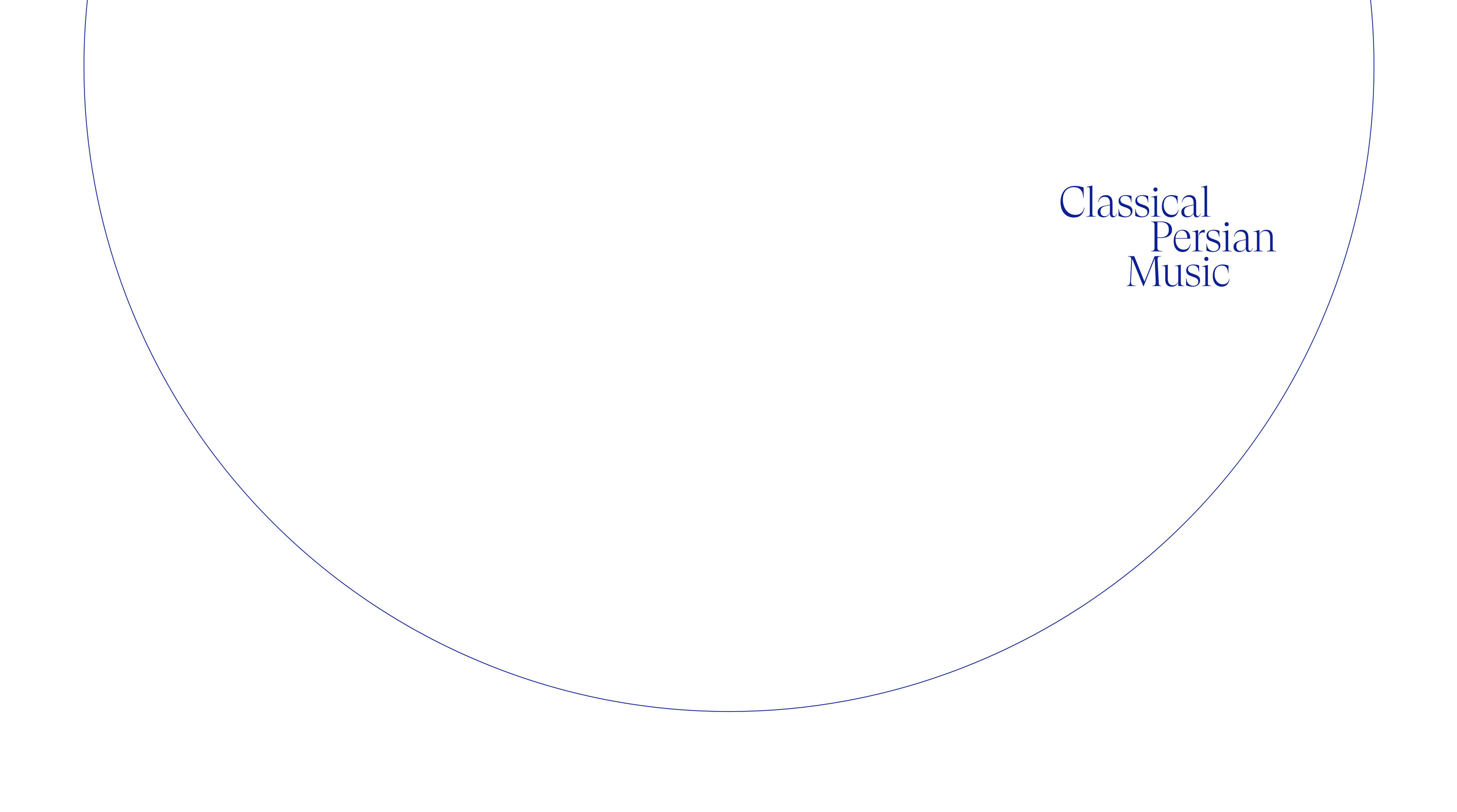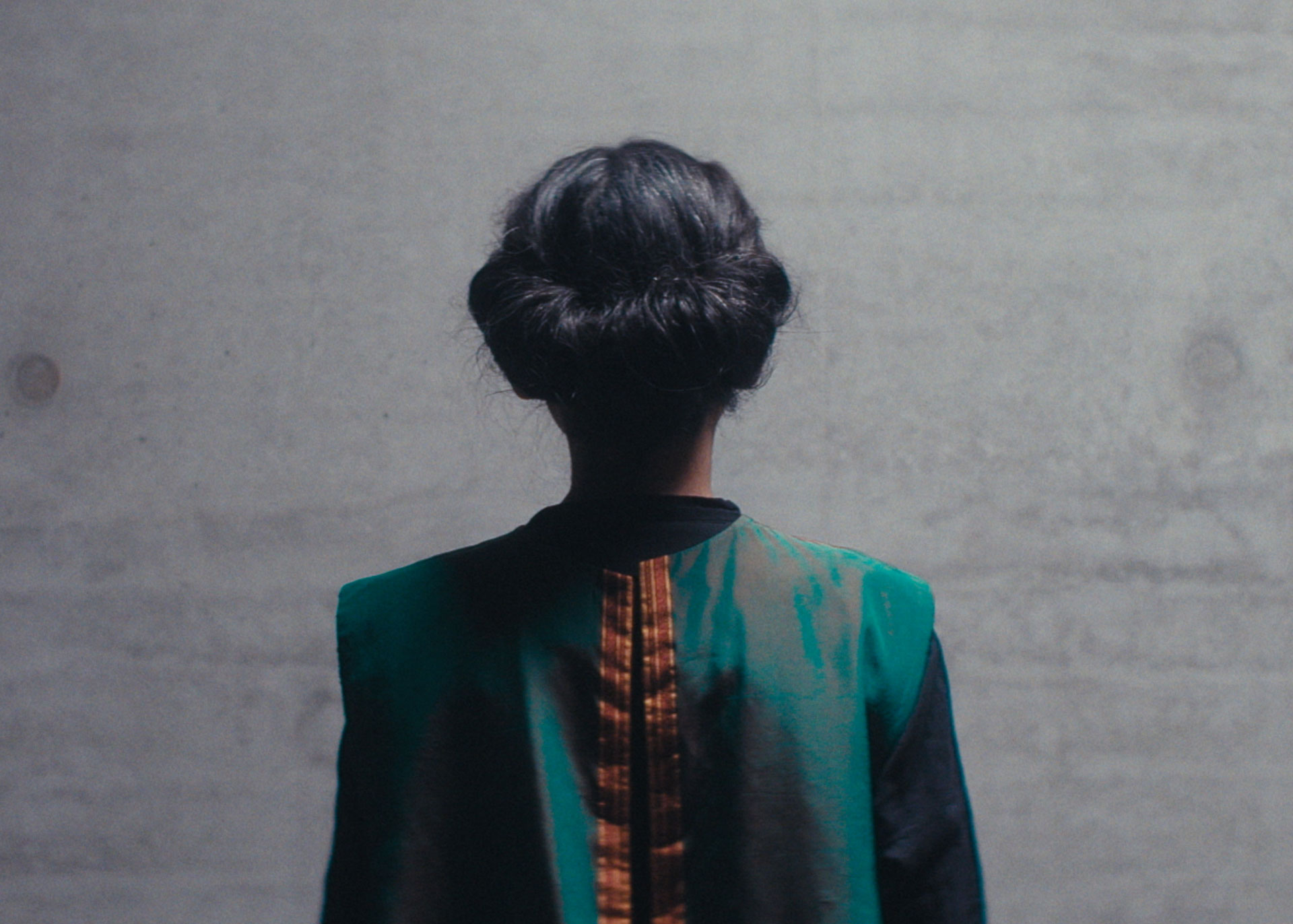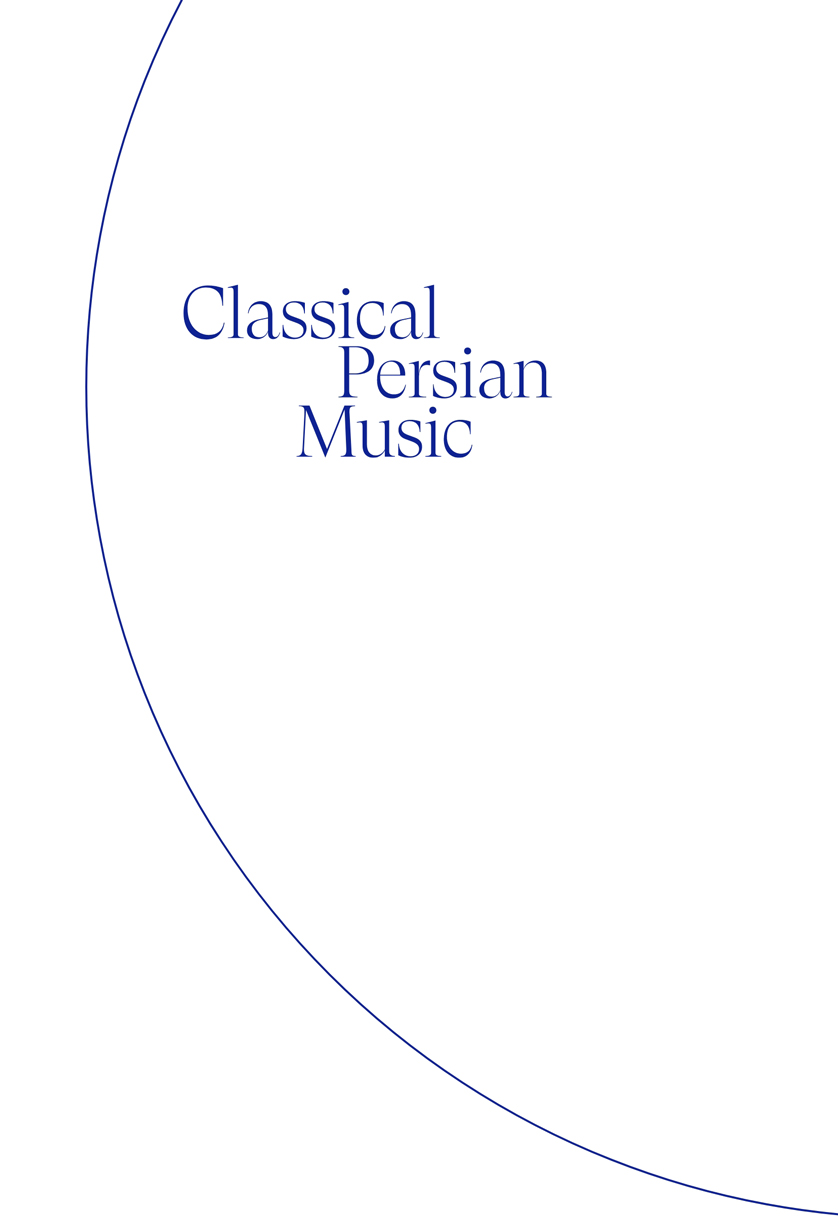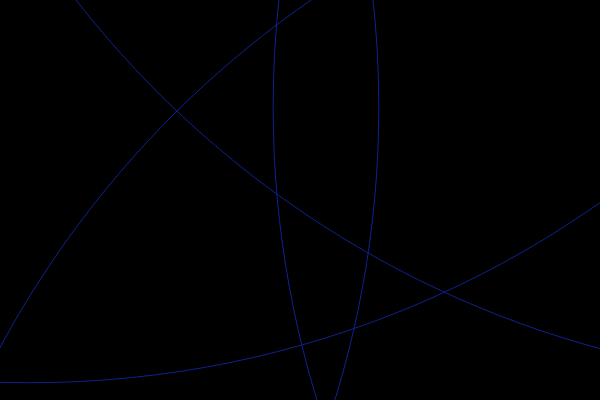

Elshan Ghasimi appears in her work as a composer, virtuoso, singer and reciter.
© Arnaud Ele
In her playing [...] every phrase is invested with deep thought and grave authority" - Michael Church, Musics Lost and Found (2021)
Elshan Ghasimi (*1981 in Isfahan, Iran) is a master of the tar, a long-necked Iranian lute instrument, and of Persian classical art music, as well as a composer, performance artist and educator. She works in meeting spaces of tradition and modernity, West and East, music and other art forms. Language, music, physicality and dramatic expression as parts of a (cultural) whole form the basis of her work, which also embraces the visual arts - for example in the album, concert and exhibition cycle Elies Miniatures, in which Ghasimi shapes pieces from an estate into musical experience.
Her approach is greatly influenced by the tradition and practice of the radīf, the repertoire of Persian classical music, which is imparted from master to student through years of immersion and familiarisation and which she is the first female musician to reinterpret over the course of a large-scale project. Her original compositions combine poetry and conceptual art with an individual engagement with her audience and fellow musicians, a purely human encounter at eye level.
Elshan Ghasimi began her training at the age of nine at the Tehran Conservatory of Music, where she studied with Majid Vasefi, Reza Vohdani and Fariborz Azizi as well as the masters Houshang Zarif and Hossein Alizadeh. At 17, she became the youngest member of the Iranian National Orchestra (1998-2006) under the direction of Farhad Fakhreddini, before continuing her studies at the Tehran University of Art and Sculpture. During her studies, Ghasimi deepened her knowledge of Iranian philosophy, literature and poetry, the radīf, improvisation and tar playing with masters such as Mohammad Reza Lotfi, Dariush Pirniakan and Dariush Talai. The bilingual musician, who grew up speaking Farsi and Azerbaijani, further broadened her education in Baku by studying the Caucasian Tar and the muǵam, the repertoire of classical Azerbaijani music.
She has been living in Germany since 2016, where she composes for and performs with ensembles such as Concerto Köln and Ensemble ɛkstʁaktə, while also performing as a soloist. Furthermore, she passes on her knowledge in the context of teaching assignments, as most recently at the University of Marburg.

2022 © Stark & Shakupa

Building Bridges between East and West
For Western musicians, non-European art music, which can only be inadequately represented by notation, remains a book with many seals. Breaking this down and building a bridge from east to west is one of Ghasimi’s heartfelt concerns. As a mediator and didactician between Persian and European music culture, she searches for new spaces and concepts of communication. It may surprise you: Western instruments can play classical Persian music.
Music for Cologne in Dastgāh-e Shur
for the Kölner Philharmonie, 2021, © Folkert Uhde

The renewal of the Radīf
The Radīf (English: series, sequence, ranking) is the melodic repertoire of classical Persian music and a collection of hundreds of melodic figures, so-called guschehs (cutout, corner, angle). These are in turn divided into 12 modal systems.
Elshan Ghasimi has been dedicating herself to the re-interpretation of this lore structure since 2020. She is thus the first woman in an ancient tradition to embark on an overall modification of this repertoire.
In early 2021, she recorded the Dastgāh-e Māhur as the first of the twelve systems.
2022 © Stark & Shakupa

Elies Miniatures
Elies Miniatures is the name of a long-term collaborative project and a series of concept albums. The series, which began in 2018, merges music, visual arts, poetry, exhibition and biographical narration. At the heart of the undertaking is a poeticising remembrance of the life and work of the mystic, mathematician and poet El Arbi Bouqdib, who died in 2016.
Elies Miniatures I – Ein Garten singender Dinge,
2018 © Stefan Hähnel
© 2024 Elshan Ghasimi. All rights reserved.
Contact:
contact@elshanghasimi.com
Site-Info
Design & Realisation
Masoud Morgan



Elshan Ghasimi appears in her work as a composer, virtuoso, singer and reciter.
© Arnaud Ele
Elshan Ghasimi (b. 1981 in Isfahan, Iran) is a Tar virtuoso, composer, performance artist, and master of classical Persian music.
At the age of 9, Elshan Ghasimi began studying classical Iranian music at the Tehran Conservatory of Music. She studied with Majid Vasefi, Reza Vohdani, and Fariborz Azizi, as well as masters including Houshang Zarif and Hossein Alizadeh. In her final year of study, before continuing her education at the Tehran University of Art and Sculpture, Ghasimi became the youngest member of the Iranian National Orchestra (1998-2006) under the direction of Farhad Fakhreddini at the age of 17.
In her years as a student, Ghasimi deepened her knowledge of Iranian philosophy and literature, the Radīf (the repertoire of classical Iranian music), improvisation, and tar playing with masters such as Mohammad Reza Lotfi, Dariush Pirniakan, and Dariush Talai. In Baku, Azerbaijan, she continued her education by learning the Mugham (traditional, Azerbaijani form of music) and Caucasian tar.
In her compositions, Ghasimi often adopts classical, literary themes while combining music, performance and conceptual art. She works across genres and advocates for equal dialogues between classical Iranian and classical European musical traditions. When giving performances, she plays classical repertoires as well as new and original compositions.
Since 2016, Ghasimi has lived in Tehran and Berlin, performing both as a soloist and in collaboration with other musicians.

Elshan Ghasimi is a master of the Persian string instrument Tar and the Radīf, the repertoire of classical Persian music.
Music for Cologne in Dastgāh-e Shur for the Kölner Philharmonie, 2021, © Folkert Uhde
Building Bridges between East and West
For Western musicians, non-European art music, which can only be inadequately represented by notation, remains a book with many seals. Breaking this down and building a bridge from east to west is one of Ghasimi’s heartfelt concerns. As a mediator and didactician between Persian and European music culture, she searches for new spaces and concepts of communication. It may surprise you: Western instruments can play classical Persian music.

RADĪF, Dastgāh-e Māhur, 2021, © Folkert Uhde
The renewal of the Radīf
The Radīf (English: series, sequence, ranking) is the melodic repertoire of classical Persian music and a collection of hundreds of melodic figures, so-called guschehs (cutout, corner, angle). These are in turn divided into 12 modal systems.
Elshan Ghasimi has been dedicating herself to the re-interpretation of this lore structure since 2020. She is thus the first woman in an ancient tradition to embark on an overall modification of this repertoire.
In early 2021, she recorded the Dastgāh-e Māhur as the first of the twelve systems.
RADĪF, Dastgāh-e Māhur, 2021, © Folkert Uhde Elies Miniatures I – Ein Garten singender Dinge, 2018 © Stefan Hähnel
Elies Miniatures
Elies Miniatures is the name of a long-term collaborative project and a series of concept albums. The series, which began in 2018, merges music, visual arts, poetry, exhibition and biographical narration. At the heart of the undertaking is a poeticising remembrance of the life and work of the mystic, mathematician and poet El Arbi Bouqdib, who died in 2016.
© 2024 Elshan Ghasimi. All rights reserved.
Imprint
Privacy Policy
Site-Info
Design & Realisation
Masoud Morgan
Contact:
contact@elshanghasimi.com


